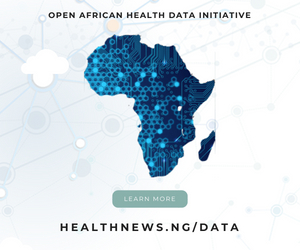Ensuring the success of the National Health Insurance Scheme (NHIS) is central to the achievement of universal health coverage (UHC) in Ghana according to the country’s Vice President, Dr. Mahamudu Bawumia.
Addressing a ceremony at the Jubilee House to celebrate the 15th anniversary since the introduction of the NHIS and to launch new innovations aimed at making the NHIS more efficient, Bawumia said the Ministry of Health and the Management of the NHIS have for the last 24 months, through hardworking and dedication, rescued the entire scheme from total collapse as was inherited from the former government under John Mahama.
“Ghana’s National Health Insurance Scheme is uniquely positioned and mandated by law as the country’s vehicle to attain Universal Health Coverage (UHC). It is a path that all well-meaning countries around the world including Ghana aspire to pursue and are committed to achieve its realization by the year 2030; however we’ll do everything humanly possible to achieve Universal Health Coverage in Ghana sooner than 2030. The government of Nana Addo Dankwa Akufo-Addo is determined to continue to provide the political and economic will to see this dream realized” Dr. Bawumia said.
“We’ll do everything humanly possible to achieve Universal Health Coverage in Ghana sooner than 2030.”
Ghana’s VP
He further stated that “fifteen years of proving access to health care to the people of Ghana and on the path to achieving universal health coverage has not been a merry ride, but we will surely get there with hard work, dedication, perseverance, patriotism and discipline”.
Dr. Bawumia called on the citizenry to join forces with the NHIS, the Ministry of Health and government to ensure that the NHIS succeeds, saying, “To my fellow Ghanaians, let us join hands together to make the NHIS work to make mother Ghana a healthy nation”. He added that digitization has arrived at the NHIS and it is going to help the country move a step closer to building a modern economy.
The Minister for Health, Kwaku Agyeman Manu, in his remarks indicated that if the Nation Health Insurance Scheme (NHIS) fails, Ghana as a country is doomed. He assured that the Ministry will continue to give the NHIS and its management all the support they need to introduce more innovations to improve the NHIS.
New Innovations
The NHIS has introduced a dedicated Unstructured Supplementary Service Data, (USSD) Code, (*929#), through which NHIS members can renew their annual subscriptions which hitherto has been a source of worry for NHIS subscribers due to long queues and delays associated with the exercise at the renewal centres.
The National Health Insurance Authority (NHIA) launched the new platform in December this year to allow clients of the National Health Insurance Scheme(NHIS) to renew their annual membership on their mobile phones. The system would be relying on the mobile money banking system and the system is expected to permit clients to renew their membership on any of the mobile money platforms.
Additionally, the NHIS in collaboration with the National Investment Bank will be using technology to enhance their financial system in providing access to health care through e-receipting to its customers in order to reduce manual interventions in cash management. The National Health Insurance Scheme The National Health Insurance Scheme (NHIS) is a social intervention program introduced by government to provide financial access to quality health care for residents in Ghana.
The NHIS is largely funded by, the National Health Insurance Levy (NHIL), which is 2.5% levy on goods and services collected under the Value Added Tax (VAT), 2.5 percentage points of Social Security and National Insurance Trust (SSNIT) contributions per month, returns on National Health Insurance Fund (NHIF) investments premium paid by informal sector subscribers and government allocation, all of which complements the funding of the scheme. Several categories of health care facilities have been credentialed by the National Health Insurance Authority (NHIA) to provide services to subscribers.

















